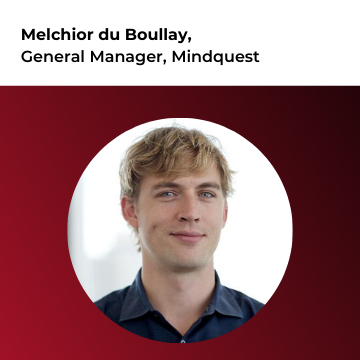Company culture is deeply rooted in its values. They unite employees and serve as a beacon in a world that is constantly changing. To a company, its values are its DNA, the source code from which to develop. For the individual employee, it is the compass that guides them through the storm. It is the force of conviction that prevents them from stalling in the acceleration phase. But what happens when, amidst a global health crisis, everything is shaken to the core? Will the company’s values be swept away? Or will the company manage to adapt those values to the new context? These questions are fascinating and, above all, crucial.
by Melchior du Boullay, General Manager, Mindquest
Company culture eats strategy for breakfast
It probably hasn’t escaped your notice: the younger generations are increasingly sensitive to the values conveyed by their employer. As a result, corporate culture is now a real point of differentiation and a strong lever of attractiveness.
As Peter Drucker, the eminent business management theoretician and consultant, once wrote: culture eats strategy for breakfast. This does not mean that strategy plays a minor role in development and success, but rather that only a strong corporate culture, with strong values, will be able to mobilize and unite all employees to lead them on the road to success. Moreover, there is a difference between what we say and what we do, and we must therefore always ensure that our values and strategy are well aligned. Corporate culture can only exist if company leadership is in line with it and embodies it in their daily actions. One can no longer present oneself as a defender of ecology and form dubious partnerships with polluting companies. The situation has changed.
Companies need now to change their culture in accordance with our evolving society. It is okay to suddenly claim a company value that will be well perceived internally, but it is necessary to apply it in a concrete way. Otherwise, your collaborators will feel neither concerned nor involved.
Values need to be concrete
The values of a company are not abstract. They reflect the company’s activity, its size and its employees. They cover a way of being and acting, behaviours and rites, rules and processes. I firmly believe that a strategy that suddenly deviates from its axis without being based on values is doomed to fail.
In the event of accelerated development, crisis or a pivot, the company’s culture must adapt, but in no way deny itself. To do this, we must start by listening to what our employees have to say. Values, unlike strategy, do not come from the top but from the bottom. They are the foundations, a guarantee of solidity that makes the company’s culture a kind of superior authority. It is thus not uncommon to hear employees refer to it easily, or even with defensiveness, as if invoking culture as an answer to everything: “we do it this way because it is part of our culture”.
And it is not for nothing that the operational efficiency of a company relies heavily on internal communication. It is necessary to constantly remind people of the values we intend to share and to have those who put them into practice every day be vocal about them. This is all the more true in a crisis situation. A value is not just a word that gets thrown around. What matters first and foremost is the way in which each person makes it their own, embodies it and embeds it in their work.
Drawing on values to prepare for the future
A company that goes through a major crisis will always bounce back thanks to the involvement of its employees. Just look at what has happened since the beginning of the pandemic. Company culture has played a determining role in everyone’s ability to adapt. Confronted with an unprecedented situation, people have been able to readjust their values.
Let’s take the example of autonomy. Today, as in the past, the word remains the same, but the reality it covers has totally changed. Until two years ago, being autonomous meant being free to act within one’s own area of competence, without having to refer to one’s manager on a daily basis. With Covid and the rise of teleworking, the notion has broadened. Many people now manage everything themselves: their schedule and their work organization. And everyone will have to learn from this period.
This is the main challenge that awaits companies that want to be ready for the future. How can they evolve their values without disengaging their workforce and, above all, how can they capitalize on their achievements during the health crisis? They will have to go back to the drawing board: question their values, create new working groups, and pay attention to the feelings, experiences and desires of each individual employee.
It has become critical to know the differences between the world before and after the pandemic to identify the right processes and the most efficient action plans. A great and exciting adventure!
This article was originally published on Forbes France.

Also discover our articles:
- Calling on Freelancers: A Winning Strategy for IT Departments in Times of Crisis
- 4 Keys to Hiring Top Tech and IT Freelancers

